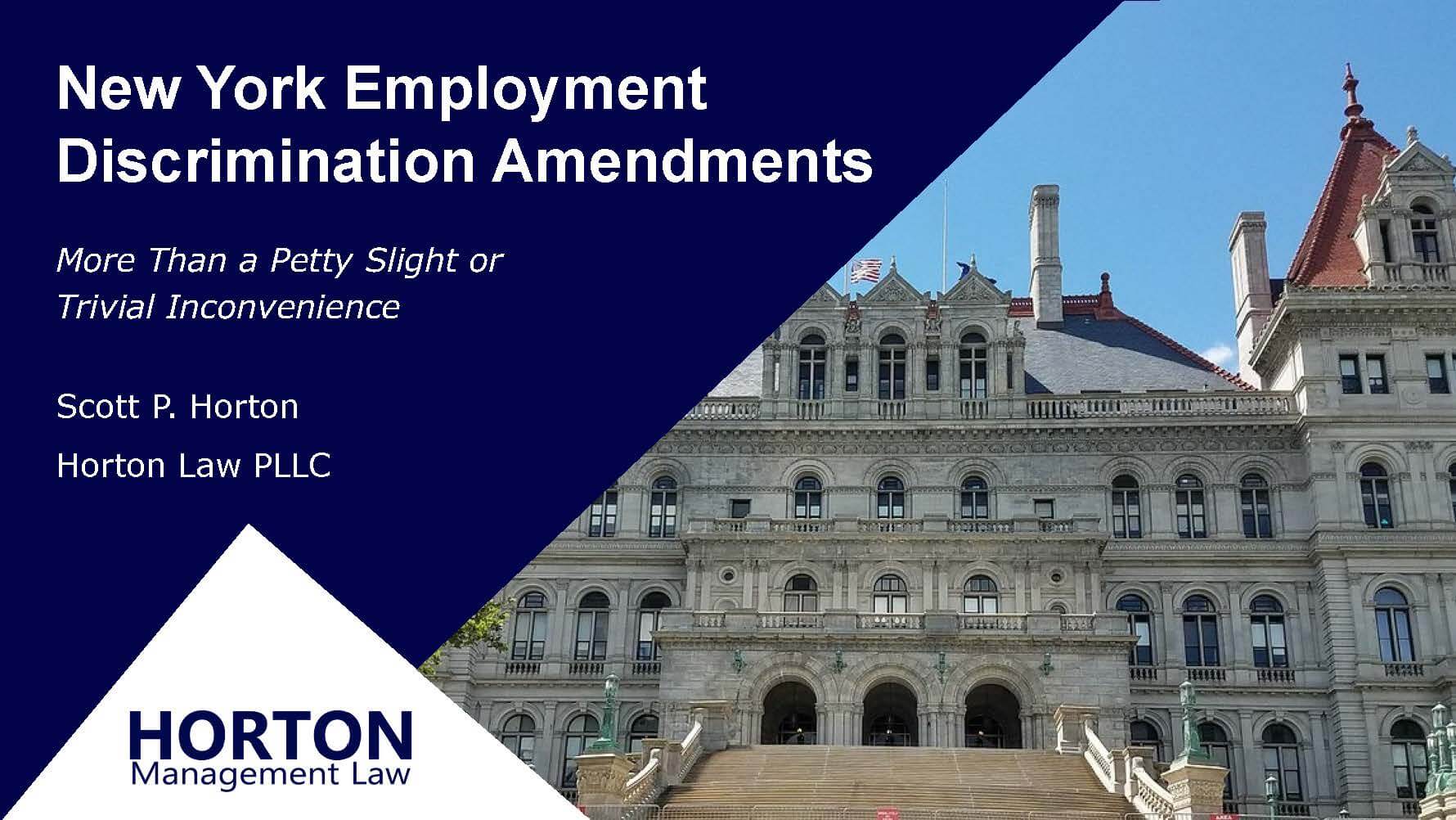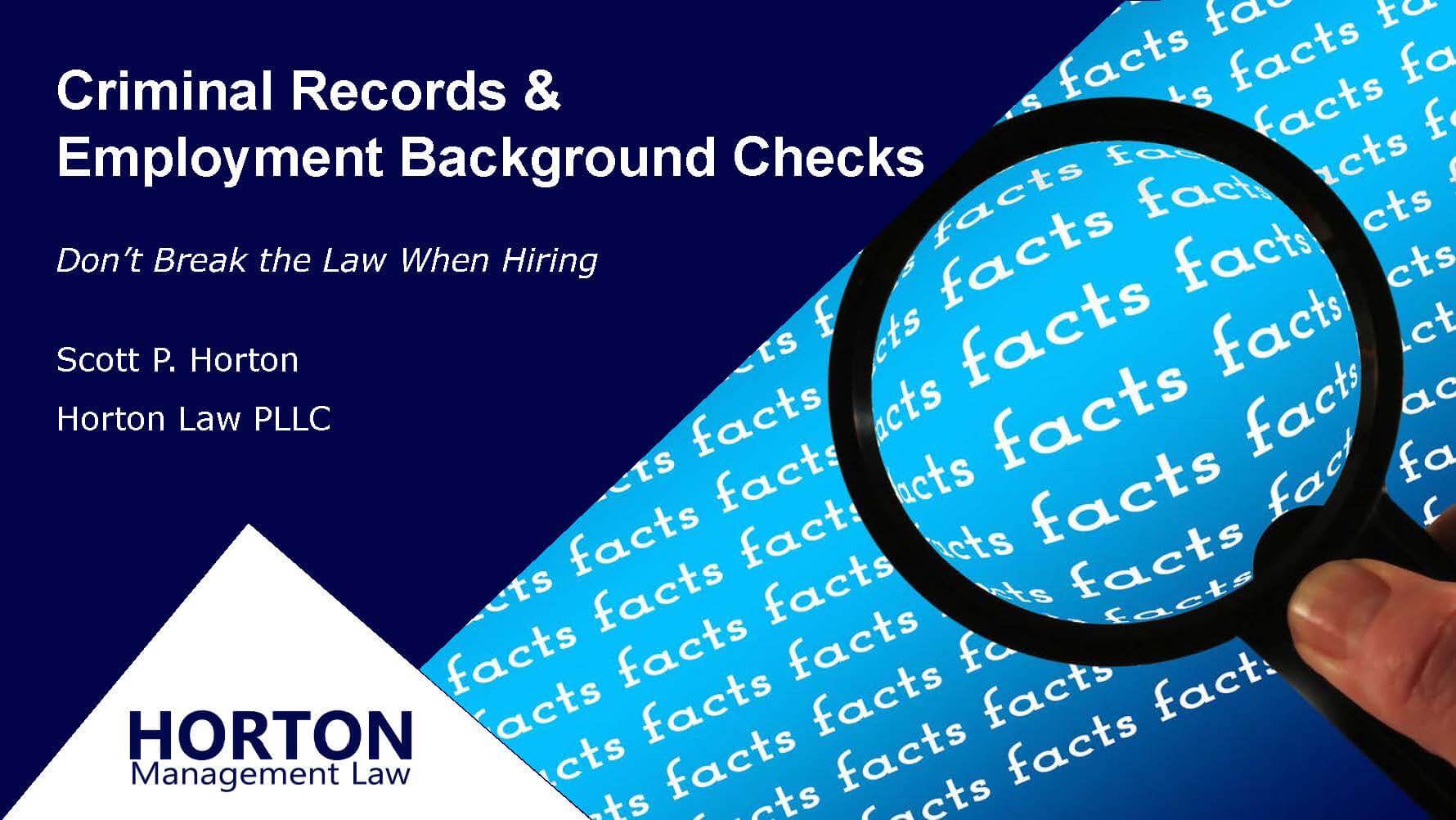On July 10, 2019, New York Governor Andrew Cuomo signed legislation imposing a broad salary history ban on employers statewide. Under this new law, New York employers cannot rely on a job applicant’s prior compensation in setting their pay. In fact, employers cannot even ask about applicants’ prior wages or salaries. There is a slight exception for situations where the applicant relies on their past compensation to negotiate a higher pay rate.
The law also applies to instances of promotion of current employees.
The terms of the New York salary history ban are in a new section 194-a of the state’s Labor Law. These restrictions will take effect in six months, on January 6, 2020.
Prohibited Salary History Inquiries
Under the new law, New York employers may not, either orally or in writing, “seek, request, or require the wage or salary history from an applicant or current employee as a condition”:
- to be interviewed,
- of continuing to be considered for an offer of employment, or
- of employment or promotion.
In fact, employers seemingly cannot seek the salary history of any applicant or current employee from anyone (i.e., the applicant/employee, their employer, or an agent of the employee) for nearly any purpose.
Exceptions
The law does provide two express exceptions to the general salary history ban.
Confirmation in Negotiations
First, employers may confirm wage or salary history “only if at the time an offer of employment with compensation is made, the applicant or current employee responds to the offer by providing prior wage or salary information to support a wage or salary higher than offered by the employer.”
Compliance with Other Laws
The New York salary history ban legislation allows that it does not override any pre-existing federal, state, or local law that “requires the disclosure or verification of salary history information to determine an employee’s compensation.” Such laws are not prevalent anyway, however.
Use of Salary History Information
Beyond restrictions on obtaining compensation information, the law restricts employers’ use of it if somehow obtained.
The law is clear that applicants or employees may voluntarily provide information about their current or past compensation. But, except in negotiations with employees over possibly increasing salary or wages, employers can’t use the information.
Applicants
The salary history ban broadly prohibits employers from relying on the wage or salary history of an applicant both in determining whether to make a job offer and in setting their wages or salary.
Current Employees
For current employees, the employer obviously knows their current salary. However, the law specifically prohibits employers from refusing to interview, hire, promote, or otherwise employ or retaliate against current employees (as well as job applicants) based on prior wage or salary history.
Employers also may not refuse to interview, hire, promote, or employ anyone for refusing to provide salary history information.
Consequences of Violating Salary History Ban Law
Applicants or employees can sue employers to recover any damages resulting from a violation of the New York salary history ban. Damages would likely include lost wages, which could be substantial, especially where the employer improperly refused to hire the person altogether.
Successful plaintiffs can also recover their attorneys’ fees.
Public Awareness Outreach Campaign
Interestingly, the law concludes with a requirement that the New York Department of Labor must conduct a “public awareness outreach campaign” about the new salary history ban. This must include placing information on the DOL’s website and other efforts to inform employers about the new law.
What Should New York Employers Do Now?
Notably, this is only one of a series of recent legal amendments that will impose new restrictions on New York employers. Companion legislation will also increase liability for pay disparity discrimination.
Fortunately, employers have some time to prepare for the new laws. You should seriously consider no longer asking about current/past pay in hiring now. That will not only help prepare your business for 2020. It might also help reduce the risk of litigation under the new pay equity rules. They take effect in October 2019.
Together, the new laws push employers to pay all employees based on the nature of the job more than on what a particular employee would be willing to receive. This will require some degree of a mindset shift regarding compensation in many workplaces.
The times are changing! Make sure you don’t miss our other updates on New York employment law.
Sign up for our free monthly email newsletter!


